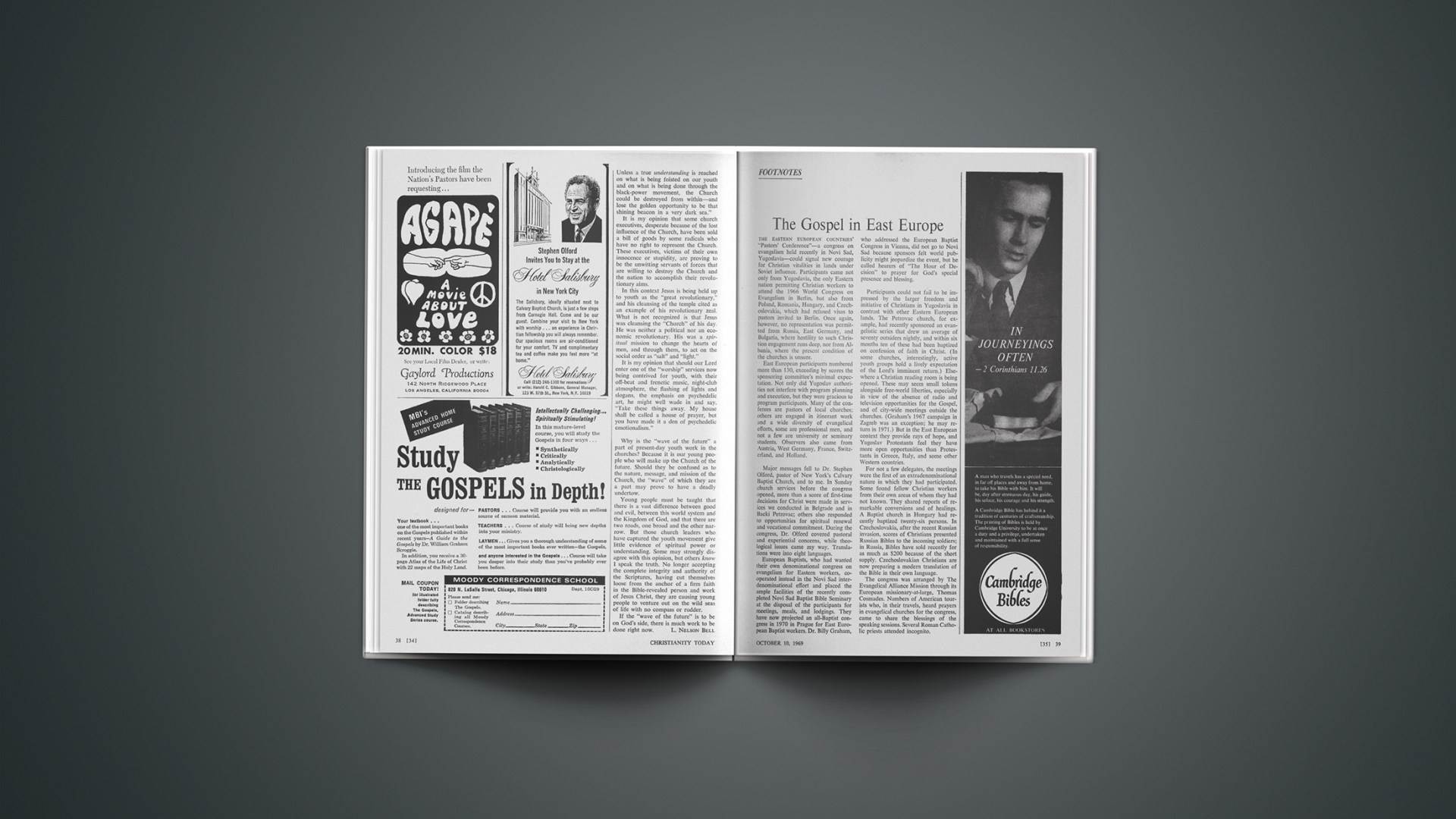The breadth of evangelical participation in the U. S. Congress on Evangelism still was not wide enough to encompass two out of four kinds of evangelicals. Both the Minnesota Baptist Convention and the American Council of Christian Churches urged their constituencies not to cooperate with the Congress. In endeavors of this nature, obvious non-participants are the many evangelicals (perhaps a majority?) who view their own denominational distinctives as so important that they are not able to cooperate even in limited ways with those from other denominational families. Countless Baptists (including those in the MBC), Calvinists, “Christians” (members of Christian Churches and Churches of Christ), Lutherans, Mennonites, and others from less well-known traditions practice virtually total separation from other evangelicals even though there is only partial disagreement. Believers can hardly be expected to alter their convictions on disputed matters without due cause. We do urge, however, that everyone make a greater attempt to distinguish between those beliefs that separate Christians from non-Christians and those that divide Christians among themselves. In a world that seems to be increasingly indifferent to the claims of Jesus Christ, can we afford to continue the luxury of complete internal fragmentation when there is only partial disagreement?
Yet among those evangelicals who have realized the need to cooperate in certain matters across denominational barriers there are still the distinct kinds, one of which does not usually participate in such nondenominational ventures as the Congress on Evangelism. This kind includes brethren like those in the ACCC (which includes Baptists, Presbyterians, Wesleyans, and members of Bible churches), who issued a carefully prepared statement explaining their non-participation. They have recognized the value of interdenominational cooperation. Yet though they are willing to work together despite differences on such matters as baptism, church government, or predestination, they have not yet been willing to work together with evangelicals who differ with them on the question of remaining in denominations in which non-evangelical doctrines are also advocated.
A third kind of evangelical comprises those who are in consistently evangelical denominations or fellowships. This kind of evangelical is willing to cooperate in nondenominational evangelical ventures with brethren who remain within mixed groups. He is not thereby associating with non-evangelicals directly, though he is associating with evangelicals who do, in other contexts, have some kind of religious ties with non-evangelicals. In effect the third kind of evangelical regards the difference over membership in mixed groups to be parallel to differences over the traditional denominational distinctives.
The fourth kind of evangelical is the one who remains in a denomination that was once consistently orthodox, but over the past few generations has become permeated with non-evangelical teaching and practice. These evangelicals, often because they do not choose to use their own denominational agencies, sponsor, together with the third kind of evangelical, many of the nondenominational schools, missions, publishers, youth groups, and other enterprises that have arisen largely in this century.
If all evangelicals were forced out of the mixed denominations (the way that evangelical professors have been made unwelcome at many colleges and seminaries that were once orthodox), this would remove the major difference among the three kinds of evangelicals who do believe in cooperation across denominational lines. But until that happens, a greater willingness to understand and respect the positions of those with whom one disagrees is called for. The witness of those in the ACCC to what they believe to be the scriptural teaching on separation from any religious association with nonevangelicals would perhaps have more influence if they were more ready to associate with those they are able to acknowledge as evangelicals. Just as Baptists and Presbyterians do not have to abandon their respective views when they come together in the ACCC, so evangelical separatists and non-separatists can and should join together from time to time in united testimony to their common Lord and Saviour.










